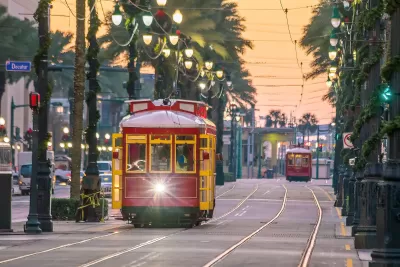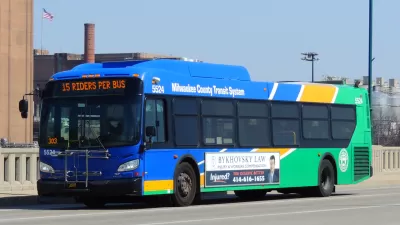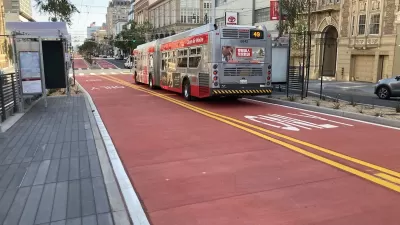Still recovering from the long-term impacts of Hurricane Katrina, the city is looking to build out and modernize its transit system to improve mobility for its many transit-dependent residents.

In an article for Governing, Jared Brey outlines plans to improve transit on land and water in New Orleans on the heels of the New Orleans Regional Transit Authority hiring a new CEO earlier this year.
In addition to opening a new ferry building this summer—“a major accessibility upgrade for the ferry system”—RTA plans to overhaul its bus network, which took a major hit after Hurricane Katrina in 2005. “According to The Data Center, just 4 percent of New Orleanians take public transit to work as of 2021, compared to 14 percent in 2000.”
To improve bus service, “RTA has begun collecting funding for a new downtown transit hub, and it has secured grants this year to buy new electric buses and to make upgrades to the ferry terminal in Algiers Point. It’s also in the early stages of planning its first-ever bus rapid transit (BRT) line — a service that could potentially slash commuting times for residents coming from outlying neighborhoods to the downtown job centers.”
According to the agency, which says roughly 22,000 people live within a quarter-mile of the line’s proposed stops, “The proposed 15-mile route would have fewer stops than traditional bus service, but, if it works correctly, more frequent and faster service with priority on the roadways.”
FULL STORY: Keeping Transit on Pace With a Changing New Orleans

Maui's Vacation Rental Debate Turns Ugly
Verbal attacks, misinformation campaigns and fistfights plague a high-stakes debate to convert thousands of vacation rentals into long-term housing.

Planetizen Federal Action Tracker
A weekly monitor of how Trump’s orders and actions are impacting planners and planning in America.

In Urban Planning, AI Prompting Could be the New Design Thinking
Creativity has long been key to great urban design. What if we see AI as our new creative partner?

King County Supportive Housing Program Offers Hope for Unhoused Residents
The county is taking a ‘Housing First’ approach that prioritizes getting people into housing, then offering wraparound supportive services.

Researchers Use AI to Get Clearer Picture of US Housing
Analysts are using artificial intelligence to supercharge their research by allowing them to comb through data faster. Though these AI tools can be error prone, they save time and housing researchers are optimistic about the future.

Making Shared Micromobility More Inclusive
Cities and shared mobility system operators can do more to include people with disabilities in planning and operations, per a new report.
Urban Design for Planners 1: Software Tools
This six-course series explores essential urban design concepts using open source software and equips planners with the tools they need to participate fully in the urban design process.
Planning for Universal Design
Learn the tools for implementing Universal Design in planning regulations.
planning NEXT
Appalachian Highlands Housing Partners
Mpact (founded as Rail~Volution)
City of Camden Redevelopment Agency
City of Astoria
City of Portland
City of Laramie





























